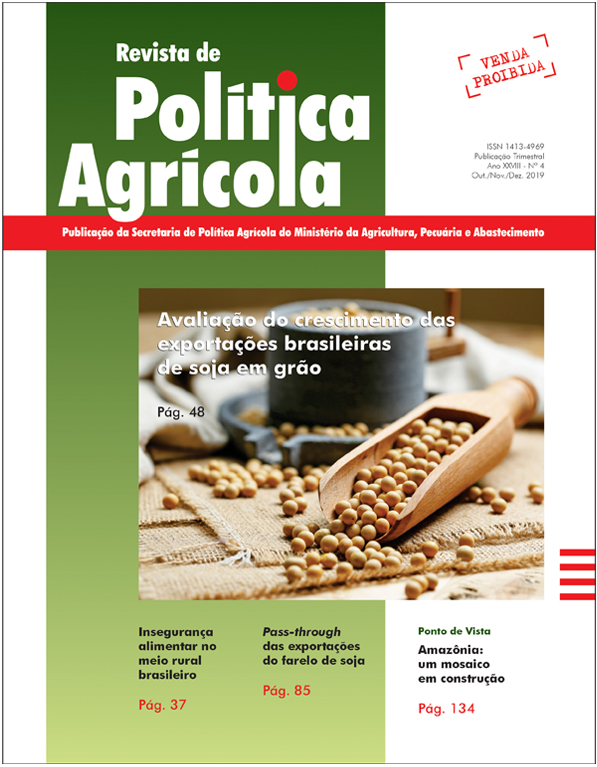Convergence of the agricultural GDP per capita of the Brazilian states
Keywords:
Agribusiness, Brazil, half-life.Abstract
The present work tests the hypothesis of convergence for the deviations of the agricultural GDP of the Brazilian states. In addition, we aim to provide an indicative for the speed with which growth rates of agricultural GDP converge to a steady state. To do so, we use a set of estimates to correct possible biases arising from the economic procedures used. The results obtained as half-lives indicate that the deviations of the agricultural GDP of the Brazilian states take, on average, about 1 year to reach the distance between the current value and the level of equilibrium. Furthermore, it was found that the greatest half-life is obtained when the state of Piauí is used as numeraire, and the lowest in the case of the state of Bahia being used.Downloads
Published
2020-05-09
How to Cite
Tabosa, F. J. S., Ferreira, R. T., Almeida, A. N., Souza, H. G. de, & Castelar, P. U. de C. (2020). Convergence of the agricultural GDP per capita of the Brazilian states. Revista De Política Agrícola, 28(4), 21. Retrieved from https://rpa.sede.embrapa.br/RPA/article/view/1431
Issue
Section
Artigos Científicos


